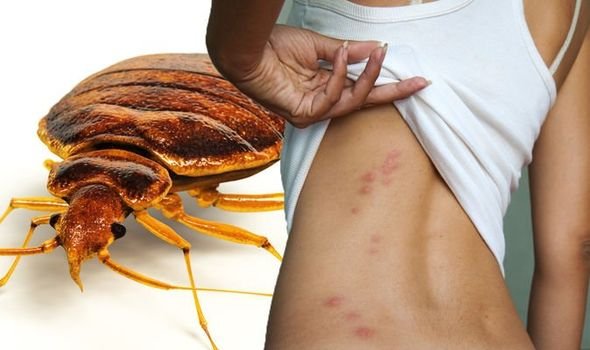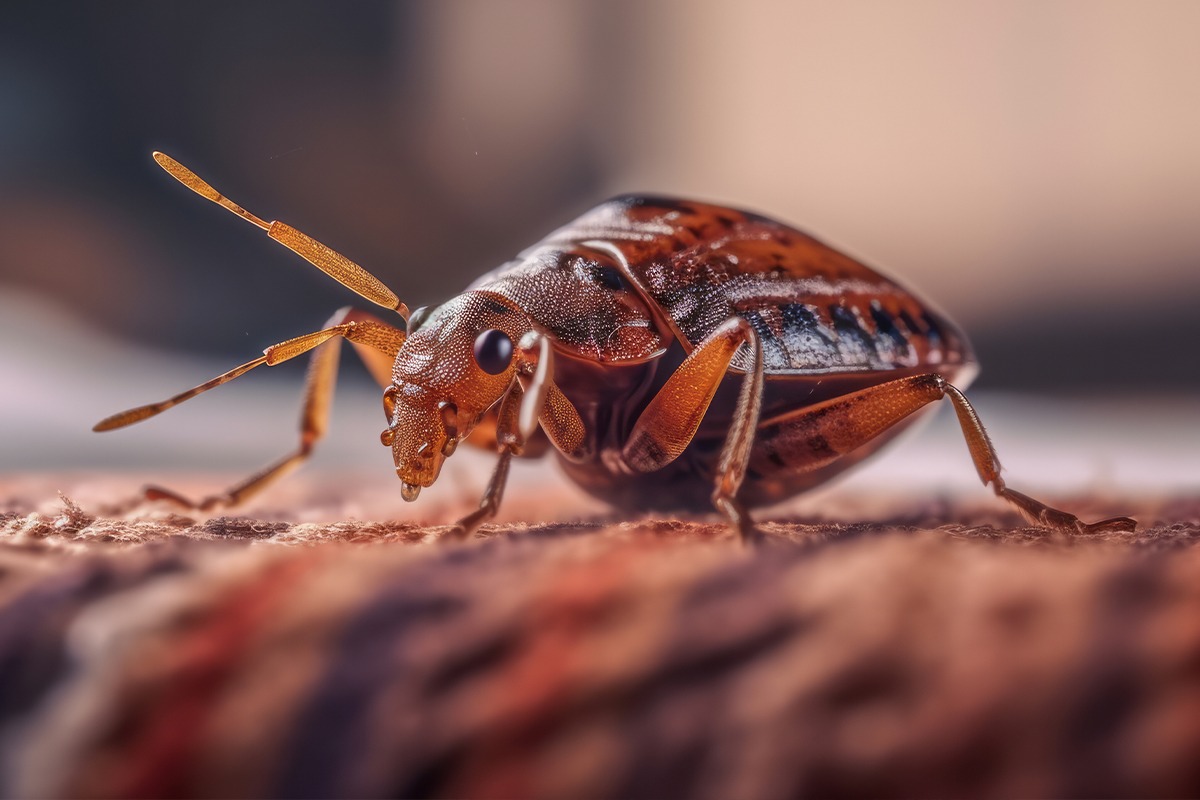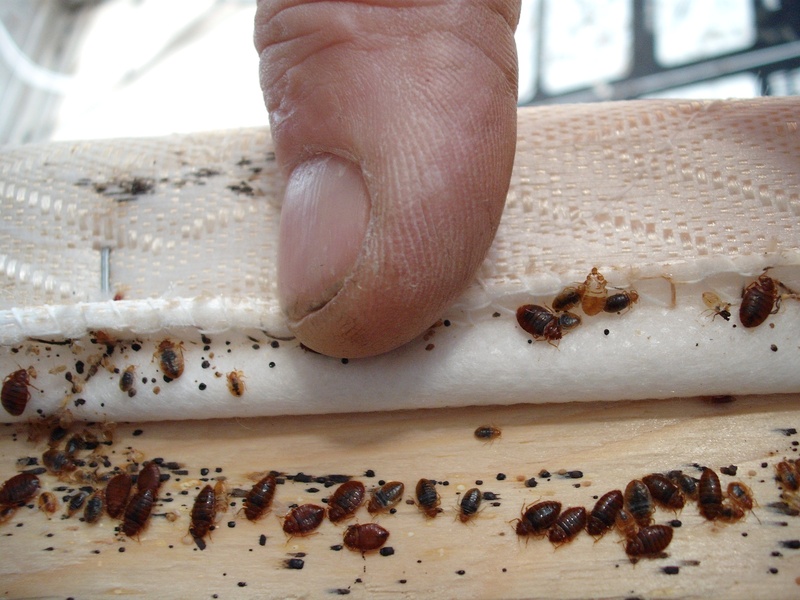A specialized Bed Bug Exterminator ensures thorough eradication with effective methods.
A specialized Bed Bug Exterminator ensures thorough eradication with effective methods.
Blog Article
Effective Bed Insect Treatment Strategies: A Key Element of Insect Control
The resurgence of bed bug invasions has emphasized the need for efficient therapy strategies within the parasite control industry. These durable insects, qualified of evading standard approaches, require a multifaceted strategy that includes both typical and innovative approaches.
Recognizing Bed Pest Actions

One of the specifying characteristics of bed insects is their capability to recreate rapidly. A solitary lady can lay thousands of eggs in her life time, bring about speedy populace growth if left uncontrolled. Furthermore, bed pests can survive for a number of months without feeding, allowing them to endure durations of host lack, which can impede timely monitoring efforts.

Traditional Treatment Techniques
While modern-day approaches to bed pest monitoring have gotten popularity, traditional therapy approaches stay fundamental in resolving infestations. These approaches largely consist of chemical therapies and physical interventions.
Chemical chemicals, such as pyrethroids and neonicotinoids, have actually been historically used to get rid of bed bugs. These materials function by interfering with the anxious system of the pests, leading to their eventual demise. Due to the advancement of resistance among bed bug populations, effectiveness can vary.
Physical methods, consisting of warmth treatment, have likewise become part of traditional strategies. This entails elevating the temperature level of infested locations to a dangerous degree for bed bugs, typically around 120 ° F(49 ° C) for sustained durations. This approach is specifically helpful as it can pass through numerous products and does not leave chemical deposits.
Additionally, detailed cleaning practices, such as vacuuming and washing infested bed linen and garments, are crucial in this approach. Sealing cracks and gaps, together with making use of bed mattress encasements, can also stop bed insects from developing themselves in living rooms. Jointly, these conventional approaches offer a crucial foundation for taking care of bed bug invasions effectively.
Modern Technologies in Therapy
The landscape of bed bug therapy has advanced considerably with the introduction of modern-day developments that improve performance and efficiency in managing infestations - Bed Bug Heat Treatment. Among the most significant innovations is the use of warmth therapy, which involves raising the temperature level of infested areas to levels lethal to bed pests. This technique not just eliminates grown-up pests yet also targets eggs, hence disrupting their reproductive cycle
One more technology is the execution of innovative tracking systems, such as bed pest detection dogs and modern traps furnished with sensors. These devices assist recognize infestations early, permitting prompt treatment. In addition, the growth of insecticides with unique modes of activity, designed to overcome resistance, makes sure that parasite control specialists have reliable options at their disposal.
Furthermore, the integration of technology in parasite control administration, such as information analytics and mobile applications for monitoring and reporting invasions, enhances the treatment procedure. These technologies jointly add to even more sustainable and effective bed pest management methods, reflecting the sector's ongoing commitment to enhancing pest control results. Because of this, both building view it proprietors and parasite administration professionals can approach invasions with better confidence and precision.
Preventative Procedures for Invasions
Reliable avoidance techniques are vital in reducing the threat of bed bug problems, with proactive procedures playing an essential function in safeguarding both residential and commercial areas. One of one of the most reliable tactics is normal inspections of living and workspace, especially in locations where individuals often collect, such as resorts and public transport. Early discovery can dramatically decrease the opportunities of an invasion coming to be established.

One more preventive action includes the mindful evaluation of used furniture and apparel prior to bringing them into your room. Making use of safety coverings on cushions and box springs can also give a reliable obstacle versus bed pests.
Last but not least, enlightening homeowners and staff members regarding the signs of bed bug presence, such as little blood discolorations or dark spots on sheets, equips people to act swiftly if they presume an infestation, thereby reducing the chance of extensive concerns.
(Bed Bug Spray)
When to Seek Expert Assistance
Recognizing the indications of a bed pest invasion early on can make a significant difference in taking care of the trouble effectively. Little, brownish bugs, in addition to rusty stains on bedding, are indications that need to not be neglected. If these signs are obvious, it is essential to assess the seriousness of the situation.
Bed pests are infamously resistant, and their ability to hide in hard-to-reach locations complicates treatment efforts. If you observe that bed bugs reappear in spite of duplicated attempts to eradicate them, it might be time to seek advice from a parasite control professional.
Lastly, people with allergies or respiratory system issues need to prioritize specialist treatment. The chemicals made use of in insect control can posture wellness risks otherwise applied correctly. Eventually, engaging a qualified pest control service guarantees a detailed and reliable resolution to bed pest problems, safeguarding your home and wellness.
Final Thought
Efficient bed insect therapy techniques are vital in controlling problems and mitigating their effect. Inevitably, comprehending bed pest behavior and understanding when to look for expert aid guarantee that effective management techniques are employed, contributing to long-term pest control success.
Report this page